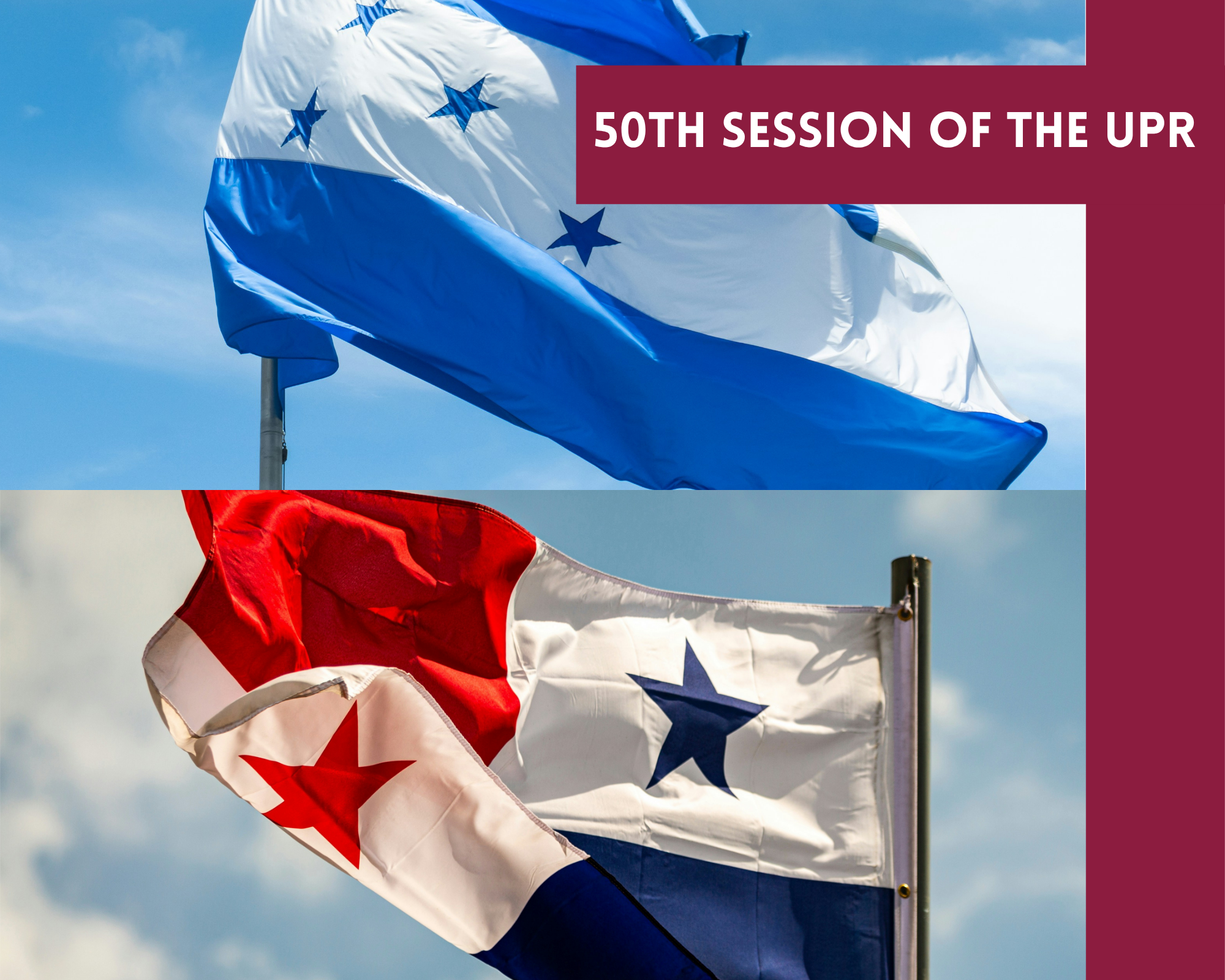
Human Rights in Panama and Honduras – the 50th Session of the UPR (4th cycle)
The 50th session of the Universal Periodic Review (UPR) took place at the Palais des Nations in Geneva from the 3rd to the 14th of November 2025. The UPR is a mechanism of the UN Human Rights Council where the human rights records of each State are reviewed every 4.5 years. The State under review presents the steps it has undertaken to enhance human rights in their country. Other states may offer recommendations aimed at fostering constructive dialogue and progress.
Each review is guided by three key documents made public before the review: the national report of the country under review, the compilation of UN information, and the summary of other stakeholders’ submissions, which includes inputs from civil society.
Over the years, IIMA and VIDES -together with their local partners-have actively engaged with this mechanism. In the framework of the 50th UPR session, we contributed to the UPR of Panama and Honduras.
Our UPR Submission on Panama highlighted key challenges in the education and health sectors. Vulnerable children in rural, indigenous, and peri-urban areas face poor infrastructure and limited access to digital tools, while many schools lack basic services such as water and electricity. With regard to their right to health, Afro-Panamanian, indigenous, and farming communities remain underserved, with scarce access to qualified medical staff, weak infrastructure, and inadequate maternal and newborn care.
During the UPR session, the delegation of Panama highlighted the progress achieved, including the provision of mental health services, the introduction of intercultural centers, and the reduction of discrimination within the health care system. The delegation also emphasized Panama’s advances in expanding rural connectivity programs and digital education, noting that 2,700 schools nationwide now have internet access. More than 80 States took part in the Interactive Dialogue, recognizing Panama’s efforts to advance human rights while issuing recommendations on the steps the country should take to further improve health and education services. Additional recommendations focused on addressing gender-based and child violence, promoting the inclusion of persons with disabilities, combating discrimination, racism and xenophobia, and protecting the rights of migrants, refugees, and asylum seekers. Watch the UPR session of Panama here.
IIMA and VIDES UPR Submission on Honduras highlighted ongoing challenges in ensuring the rights to education and health, particularly for vulnerable children, women, youth and Indigenous and Afro-descendant communities. During the UPR session, the Honduran delegation presented the progress made by the government in strengthening institutional frameworks, addressing violence, and expanding access to basic services. More than 70 states took part in the Interactive Dialogue, recognizing efforts made while issuing recommendations to improve access to quality education, reinforce the health system, and combat gender-based violence and discrimination. The rights of Indigenous peoples, Afro-descendant communities, and persons with disabilities received particular attention, alongside the need to ensure greater protection for human rights defenders and equal opportunities for youth. Watch the UPR session of Honduras here.
As IIMA and VIDES, we reaffirm our commitment to promoting the rights of children, youth, women, and vulnerable communities through the UPR. We are very grateful to our local members and partners, not only for their tireless commitment to assisting the most vulnerable populations on a daily basis, but also for their active participation in the UPR process. Without their irreplaceable knowledge of the concrete human rights challenges faced on the ground, the UPR would not be such an effective review. We also recognize the efforts undertaken by Member States to constructively engage in the UPR to ensure that it remains a fruitful exercise, truly devoted to strengthening human rights implementation worldwide.
In this context, we note with deep concern the recent decision of the United States of America to withdraw from the UPR mechanism, resulting in the cancellation of the review of the USA scheduled for the 7th November 2025. This development represents indeed a matter of concern, as it jeopardizes the universality of the UPR itself as a key human rights monitoring mechanism and limits opportunities for constructive dialogue and mutual accountability within the multilateral framework. IIMA and VIDES trust that the United States’ session will be rescheduled in the near future as requested by the HRC President, in the spirit of transparency, cooperation, and shared commitment to the promotion of human rights.

